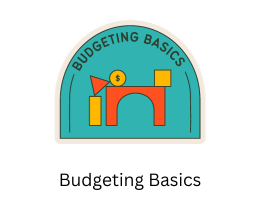
Budgeting and Money Management
- By admin --
- Monday, 21 Aug, 2023
Budgeting and Money Management: A Comprehensive Guide
Budgeting and money management are fundamental aspects of achieving financial stability and success. These practices involve creating a plan for how you will allocate your income, track your expenses, and make informed decisions about your finances. By mastering the art of budgeting and money management, you can gain control over your financial life, work towards your goals, and ensure a secure future.
Understanding Budgeting
Budgeting is essentially a roadmap for your finances. It allows you to allocate your income towards various categories such as housing, transportation, groceries, entertainment, and savings. Creating a budget provides a clear picture of your financial situation and helps you identify areas where you might be overspending or neglecting. Here's how to get started:
-
Gather Information: Collect information about your income sources and all your expenses. This includes fixed expenses like rent or mortgage, utilities, and loan payments, as well as variable expenses like dining out and entertainment.
-
Categorize Expenses: Group your expenses into categories. This helps you see where your money is going and identify areas for potential cuts or adjustments.
-
Set Goals: Determine your financial goals, whether it's saving for a vacation, paying off debt, or building an emergency fund. Your budget should reflect these priorities.
-
Allocate Income: Allocate a portion of your income to each expense category. Be realistic and ensure that your total expenses don't exceed your income.
-
Track Progress: Regularly track your spending against your budget. This will help you stay accountable and make necessary adjustments if you're overspending in certain areas.
Benefits of Budgeting
Budgeting offers numerous benefits that can positively impact your financial well-being:
-
Financial Awareness: Budgeting gives you a clear understanding of where your money goes, enabling you to make informed decisions about spending and saving.
-
Debt Reduction: By identifying unnecessary expenses, you can redirect funds towards paying off debt more quickly.
-
Savings Growth: Budgeting helps you allocate a portion of your income to savings and investments, helping you build a financial cushion and plan for the future.
-
Goal Achievement: When you allocate funds toward specific goals, you're more likely to achieve them. Budgeting keeps you focused on your priorities.
Effective Money Management
Money management goes beyond budgeting. It involves making smart decisions about your financial resources to maximize their value. Here are some key aspects of effective money management:
-
Emergency Fund: An emergency fund is essential for unexpected expenses like medical bills or car repairs. Aim to have 3 to 6 months' worth of living expenses saved in an easily accessible account.
-
Debt Management: Prioritize paying off high-interest debts, such as credit card balances, as quickly as possible. Consider strategies like the debt snowball or debt avalanche method.
-
Savings and Investments: Allocate a portion of your income to savings and investments. Savings accounts provide liquidity for short-term goals, while investments can help your money grow over the long term.
-
Automate Finances: Set up automatic transfers to your savings and investment accounts. This ensures consistency in your saving habits.
-
Regular Reviews: Periodically review your financial situation and adjust your budget and goals as needed. Life circumstances change, and your financial plan should adapt accordingly.
Common Budgeting Mistakes
While budgeting is an invaluable tool, there are common mistakes to watch out for:
-
Setting Unrealistic Goals: Overambitious goals can lead to frustration. Start with achievable goals and gradually challenge yourself as you make progress.
-
Neglecting Irregular Expenses: Don't forget about expenses that occur irregularly, like annual insurance premiums or holiday gifts. Plan for these by setting aside funds each month.
-
Ignoring Fun: A budget should include room for entertainment and leisure. Neglecting these categories can lead to burnout or overspending later.
-
Not Tracking Expenses: Failing to track expenses throughout the month makes it difficult to stay on top of your budget. Use apps or spreadsheets to record every purchase.
In Conclusion
Budgeting and money management are vital skills that empower you to take control of your financial future. By creating a well-structured budget and practicing effective money management, you can make informed decisions, achieve your goals, and secure your financial well-being. Remember, it's never too late to start. With dedication and discipline, you can transform your financial life and enjoy the peace of mind that comes with financial stability.





